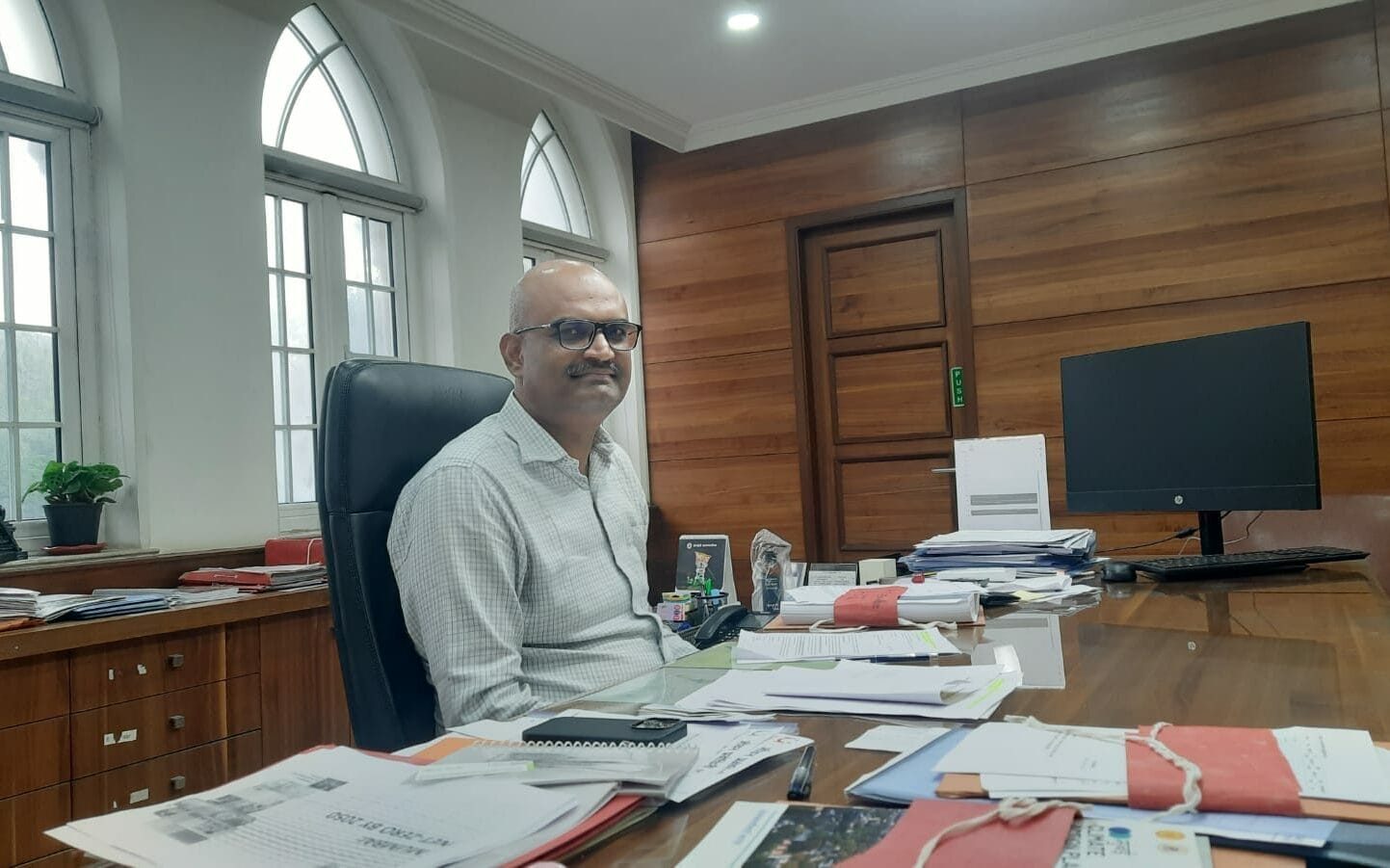Amid a rise in COVID-19 cases attributed to the novel variant JN.1 of the virus, the Brihanmumbai Municipal Corporation (BMC) plans to escalate COVID-19 testing during the festive season. Despite the increase in COVID-19 cases, the positivity rate in Mumbai remains below 5%. Dr Sudhakar Shinde, additional commissioner of BMC, told Citizen Matters that the situation is well under control and no restrictions will be imposed.
The BMC clarified that the city has not identified any cases of the JN.1 variant so far.
According to BMC’s data, as of December 24, Mumbai had a total of 77 COVID-19 positive cases and none of them are of JN.1 variant. Mumbai’s positivity rate stands at 3.3%, slightly increasing compared to November’s 1.6%. In Maharashtra, 10 patients, who were detected with the new variant, were in home isolation and had mild symptoms.
80% of cases confined to high-rise areas
The BMC reported that 80% of COVID cases are concentrated in high-rise areas, with the remaining 20% in informal settlements. The spread is confined primarily to high-rise locations, and among those affected, most patients do not have any symptoms. Dr Sudhakar said, “Despite this novel variant, we have not observed a substantial surge in COVID cases. In fact, zero COVID deaths have been recorded since August this year. There is no need to panic.”
Additionally, Dr Sudhakar mentioned that there is no mandate for mask-wearing and that people should take precautions at an individual level.
Meanwhile, state health minister Tanaji Sawant directed all districts to ramp up testing and repeat mock drills to ensure hospital preparedness. He also informed that a COVID task force will be appointed soon to understand and manage the emerging variant.
JN.1 variant: More transmissible, less severe
SARS-CoV-2 virus is continuously evolving and forming new lineages. JN.1 is a sublineage of the Omicron, subvariant of COVID-19. It is characterised by an additional spike protein mutation. The World Health Organisation designated JN.1 as a “variant of interest.” It underlined that the additional global public health risk posed by the new variant “is currently evaluated as low” – implying that the existing therapies and vaccine will continue to protect against severe COVID-19 infection.
Experts say this variant spreads quickly but is not severe. Dr Rahul Pandit, senior intensivist from H N Reliance Hospital, said, “Based on the available evidence, it appears that this new variant may be more transmissible, but its severity is not high. In the majority of patients, symptoms are mild. Importantly, this variant does not exhibit immune escape or testing evasion. While we should exercise vigilance, there is no reason to be alarmed. Despite a slight surge in cases, there is no corresponding increase in hospitalisations.”
Dr Rahul mentioned that during this festive season, no mandate is required on travelling or other movements, and precautions must be taken at the individual level.
Experts have indicated that cases might increase over the next few days due to intensified testing and vigilance. However, if hospitalisations remain minimal, there is no cause for concern. Moreover 80% of the population in Mumbai has been vaccinated.
Read more: Omicron variant crushes hopes for a virus-free 2022
BMC’s COVID preparedness
Dr Sudhakar said, “BMC is prepared to handle the current situation. If cases increase, we will step up the system accordingly.” Additionally, he mentioned that a review of BMC hospitals was conducted to ensure stock of essential medicines, masks, PPE and testing kits. Both civic hospitals Kasturba and Seven Hills hospitals are well-prepared and equipped with ICU and isolation beds, he said.

Dr Daksha Shah, executive health officer of BMC, said that the civic body follows the advisory given by the State Health Department and Union Health Department. She added that BMC is sending samples for genome sequencing as per directives of the State Health Government.
At present, the BMC conducts 1000 tests per month. BMC officials stated that the civic body is prioritising RT-PCR tests and will augment testing efforts in response to the rising cases in the city.
BMC officials mentioned that due to insufficient number of positive samples, genome sequencing at Kasturba Hospital is not being done. The civic body sends samples to the National Institute of Virology, Pune (NIV).
| Dos and Don’t s |
| Maintaining basic respiratory etiquette, like covering your mouth and nose while coughing and sneezing, is essential. Individuals with co-morbidities or high-risk groups should take precautions, especially when travelling in crowded or closed environments, particularly during the festive season. These individuals must wear masks in crowded places. Children and senior citizens, being more vulnerable due to lower immunity, should adhere to COVID appropriate behaviour in crowded places. While sore throat, a runny, stuffy nose, body aches and fever may be symptomatic of most COVID-19 variants, these also show up in influenza and pollution-related upper respiratory chest infection. With overlapping symptoms, testing is the only way to ensure a faster road to recovery with antivirals specific to each condition. Refrain from self-medication and consult your doctor for advice. Avoid going to work or crowded places if you have flu-like symptoms; stay at home for a day or two for them to subside. |